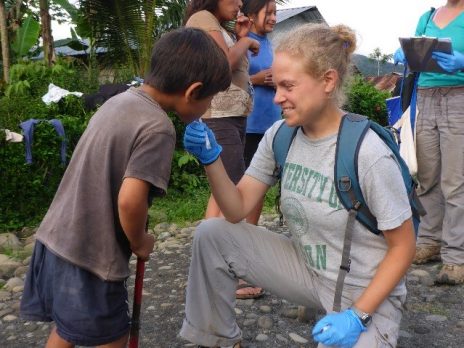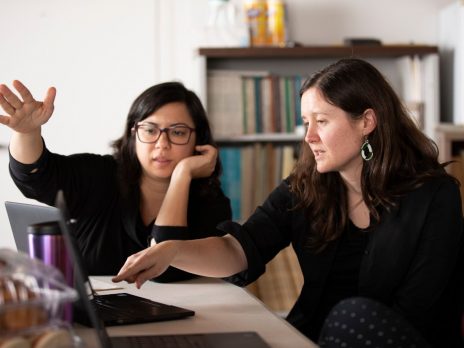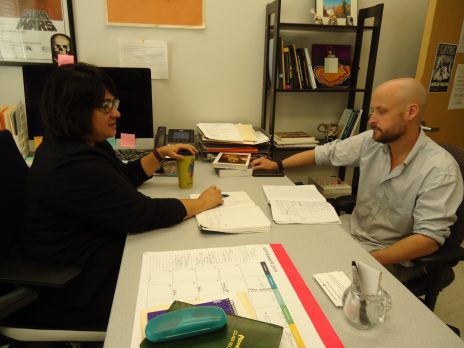Medical Anthropology
Medical anthropologists are joined by other faculty in the department working on issues of health and healing from sociocultural, linguistic, and biological perspectives. Faculty research explores the complex relations between history, biology, experience, language, knowledge, interventions, institutions, and policy. The program trains undergraduate and graduate students to integrate theory and rigorous methods in the application of anthropology to real world problems.
Faculty bring their active research into the classroom and engage students in projects and research, both globally and in the US. Geographic areas of specialization include Africa, Europe, Latin America, and the United States. Research is supported by the National Institutes of Health, National Science Foundation, Patient-Centered Outcomes Research Institute, and other national and regional funding sources. Medical anthropology in the department is strengthened through collaboration with the university’s Interdisciplinary Health PhD program, the Center for Community Health and Engaged Research, the Native American Cultural Center, and community partners.
Theoretical perspectives span critical medical anthropology, political economy, phenomenology, symbolism, critical discourse analysis, multi-modal communication, human biology and adaptation, and bioarchaeology. Methodological expertise includes: mixed methods; ethnography; qualitative and quantitative methods; social network analysis; Community-based Participatory Research and Practice (CBPR); Rapid Assessment, Response, and Evaluation (RARE); biomarkers; and stable isotope analysis.
Perspectives
Sociocultural Accordion Closed
Sociocultural faculty research encompasses the interconnections between culture, health, and healing; the social production of health disparities; intersectional approaches to inequality; social suffering and violence; and health interventions and systems. Health is explored in relation to justice, citizenship, sociality, lived experience, religion, population, and policy. Research also addresses mental and behavioral health (including chronic pain, addiction, and suicide), disability, global health practice, ethics, institutional care, emotion, and embodiment. Faculty participate in interdisciplinary efforts to understand and improve health equity and healthcare.
Linguistic Accordion Closed
Writing, speaking, and other forms of communication help constitute, manage, and navigate medical institutions, curative practices, and relations of authority in and beyond particular healing encounters. They also inform our understandings of illness and health. Linguistic anthropology offers a methodologically rigorous, evidence-driven perspective on these processes, both at the level of situated interactions and that of macrosocial relations. Theoretical perspectives and methods of linguistic anthropology provide tools for the analysis of healing, diagnostic practices, discourses of health and illness, the communicative practices around disability, articulations and management of suffering, medical authority, and discourses that surround access to healthcare and allocate responsibility for illness and health.
Biological Accordion Closed
Biological anthropologists approach medical anthropology through an evolutionary and biocultural framework that focuses on human biological variation among ancient and contemporary populations; culture change, migration, and health; skeletal biology and diet; and human adaptation to environmental and sociocultural stressors. Dr. Corina Kellner is a bioarchaeologist and biological anthropologist who studies the diet, health, and migration patterns of prehistoric people in Peru. Dr. Kellner runs The Paleodiet Laboratory which provides facilities and equipment for processing archaeological soils, water, plants, fauna, and human tissues for stable isotope analysis. Dr. Melissa Liebert is a biocultural anthropologist and human biologist who studies the effects of culture change and economic development on health outcomes among indigenous populations in Ecuador. Dr. Liebert runs The Human Biology Laboratory which includes facilities and equipment for database management and the storage and preparation of various biological samples (e.g., saliva, dried blood spots, urine) for laboratory-based analysis of stress physiology, immune function, and cardiovascular health.



